Uttam Sanjel: Democratizing education
Quick facts
Born on 24 Jan 1972 in Kathmandu
Went to Chamunda Secondary School, Kathmandu
Graduated in humanities from Pashupati Multiple Campus, Kathmandu
Established the first Samata Sikshya Niketan in 2000 (This was Nepal’s first English-medium school with just Rs 100 in monthly fees)
Husband of Kala Sanjel
Father to Sampada Sanjel

My family ran a store that sold agricultural products. It was a business started by my grandfather. As I didn’t want to take up this family business, I went to Mumbai, India, to work in the film industry. Even though I worked there as an assistant director for almost a decade, my career didn’t go as planned. So I returned to Nepal.
At the time, the country was in the midst of the Maoist insurgency. People, especially the youth, from rural areas were either joining the rebels or fleeing to Kathmandu. Those who had escaped to Kathmandu had no skill or training, which compelled them to work in carpet factories and as wage laborers.
Children of many such workers were begging to help their families. They were also picking up bad habits like smoking and drinking. The only way to help these children, I thought, was through education.
The condition of government schools at the time was awful. Most parents preferred sending their children to private schools, but not everyone could afford their high fees.
I started the Samata Sikshya Niketan (Bamboo school) in 2000 with the goal of providing quality and affordable English-medium education.
I did not offer free education as giving away services for free is virtue-signaling. It is patronizing the disadvantaged people in the garb of charity work. So I began charging Rs 100 a month in fees from parents.
I am also against the quota system. I see it as disrespecting the target communities. What I believe in is equal opportunities to all.
Running the school was a challenge in the early days. We could not manage rent or pay the staff, but we soldiered on as we knew our work was pure and honest.
We had just five students in the first school leaving certificate (SLC) batch, and all of them got distinction.
The exam results of Samata students, who only had to pay Rs 100 for their education, were better than their peers who went to expensive private schools. Samata schools have since continued to produce high-achieving students, and this has affected many private schools.
Despite the odds and many ups and downs, Samata has become a success story. Today, it has schools in all districts of Nepal—80 schools in 77 districts—where education is offered from the nursery level all the way up to the Master’s level.
It now has schools in India, Bangladesh, Sri Lanka, Myanmar, and 20 other countries as well. We plan on expanding to 40 more countries. All the schools follow a curriculum similar to the one used in Nepal.
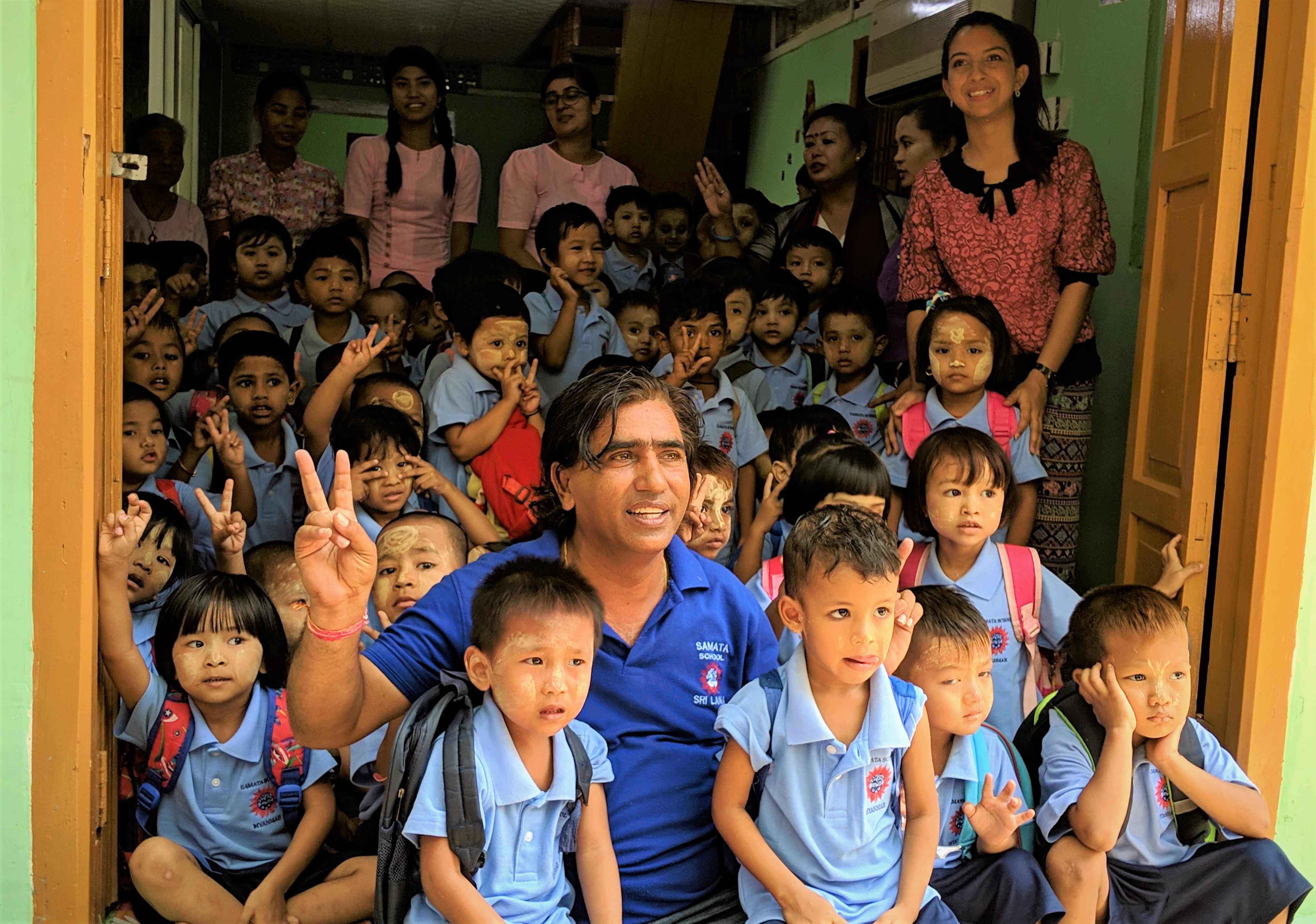 Uttam Sanjel with the students of Samata school, Myanmar | Photo: Samata School
Uttam Sanjel with the students of Samata school, Myanmar | Photo: Samata School
Our politicians have ruined Nepal’s reputation on the global stage. Through Samata schools, we are trying to restore its image.
Our education initiative has helped many students. Many of them have successful careers today. Altogether 51 students from our school are doctors, 137 have completed engineering, and a few are chartered accountants. Our students are also doing well academically in Europe and the US. A student from our school got full scholarship in one of the most prestigious colleges in Switzerland. This only goes to show that the level of education in our schools is globally competitive.
I strongly believe that education is the key to personal growth and prosperity. People often confuse prosperity with wealth. Prosperity means being well educated, conscientious, and mindful. An individual can be wealthy, but not prosperous. But those who are prosperous will always have wealth.
That is why I always encourage my students to study hard. Our schools are here to prepare them for the future, to help them build a successful career. We do this by offering high-quality education for a minimal tuition fee.
We know many Nepali parents struggle with finances. If they fail to pay their children’s fees for a few months, private schools throw these children out. Switching to government schools is not easy, as the quality of education and the school environment itself are very different.
Samata schools are consistent with the quality of education they impart, the school environment is great, and, most importantly, they are affordable for everyone.
Most of us don’t realize the purpose of life. Owning a building and living off the rent money is our idea of living. But life should not be limited to such narrow thinking. I want to encourage people to contribute to society.
Establishing an organization is not as difficult as sustaining it. But the more you persevere, the more rewarding the results will get.
Samata Sikshya Niketan has been around for more than two decades and I am glad that I started this organization and managed to keep it going.
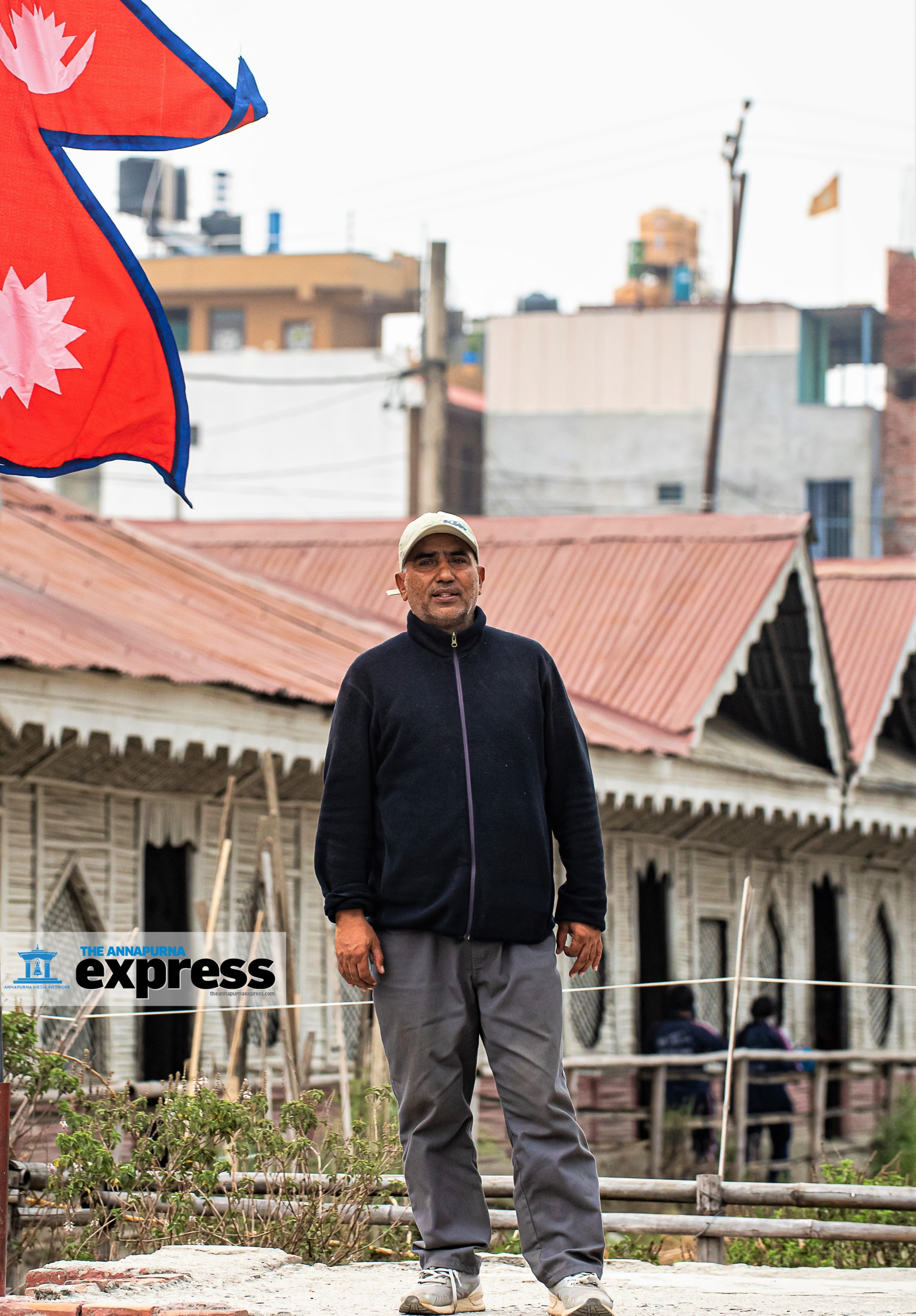
About him
Kala Sanjel (Spouse)
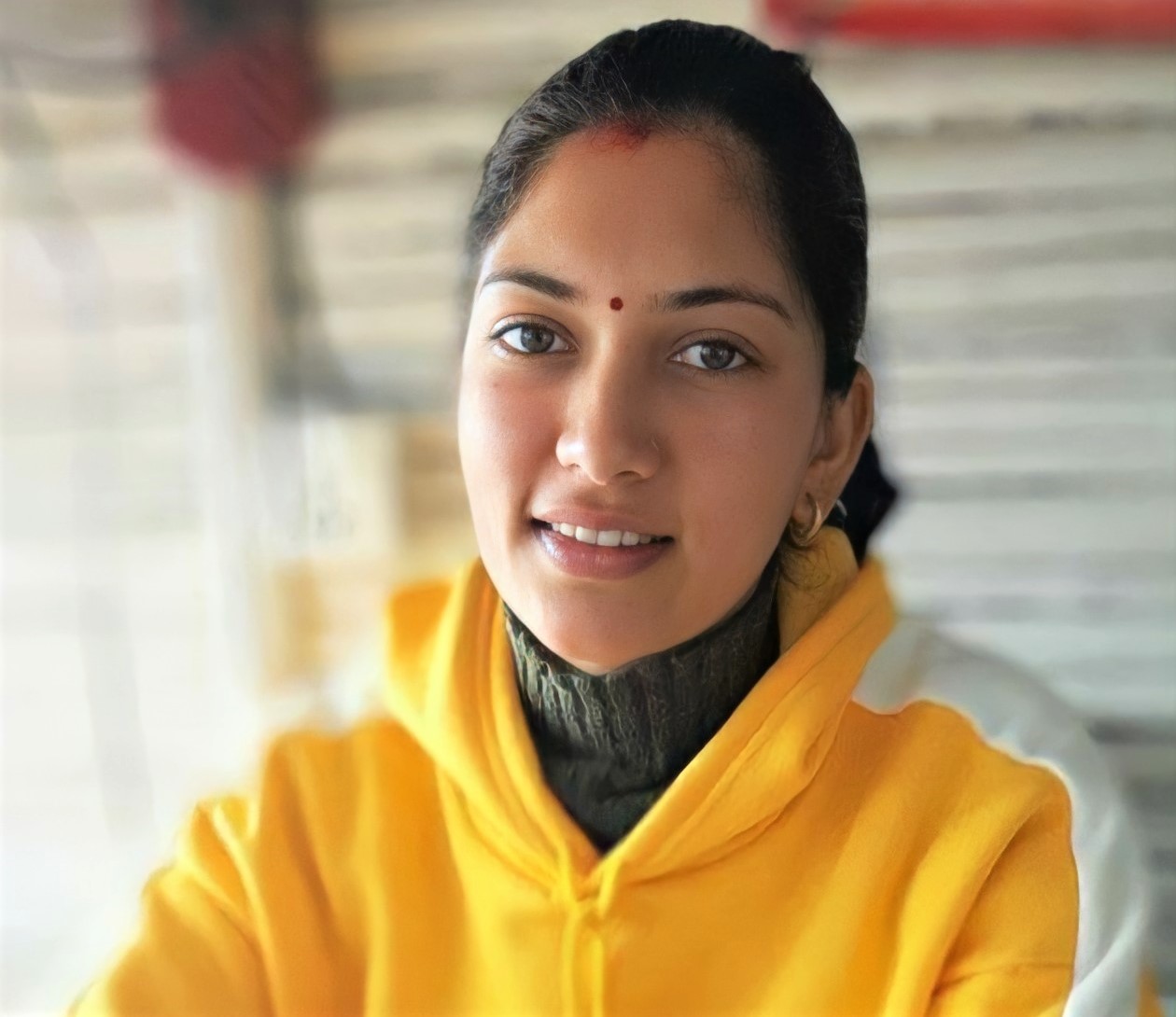
He is a kind and helpful person not only because of his contribution to the Samata School. Even his regular days start and end with kindness. He is a person of integrity and has never hurt someone’s self-respect. People these days help others for vested interest, but Uttam genuinely cares about other people.
Ashu KC (Student)

He is a godsend for those parents who cannot afford good schools for their children. I wonder how parents today pay for their children’s education. The so-called top private schools are beyond the reach of even middle-class parents, let alone the poor ones. The fact that Uttam sir has been providing quality education for just Rs 100 a month for such a long time deserves all the praise in the world.
Madan Krishna Shrestha (Colleague/guardian)
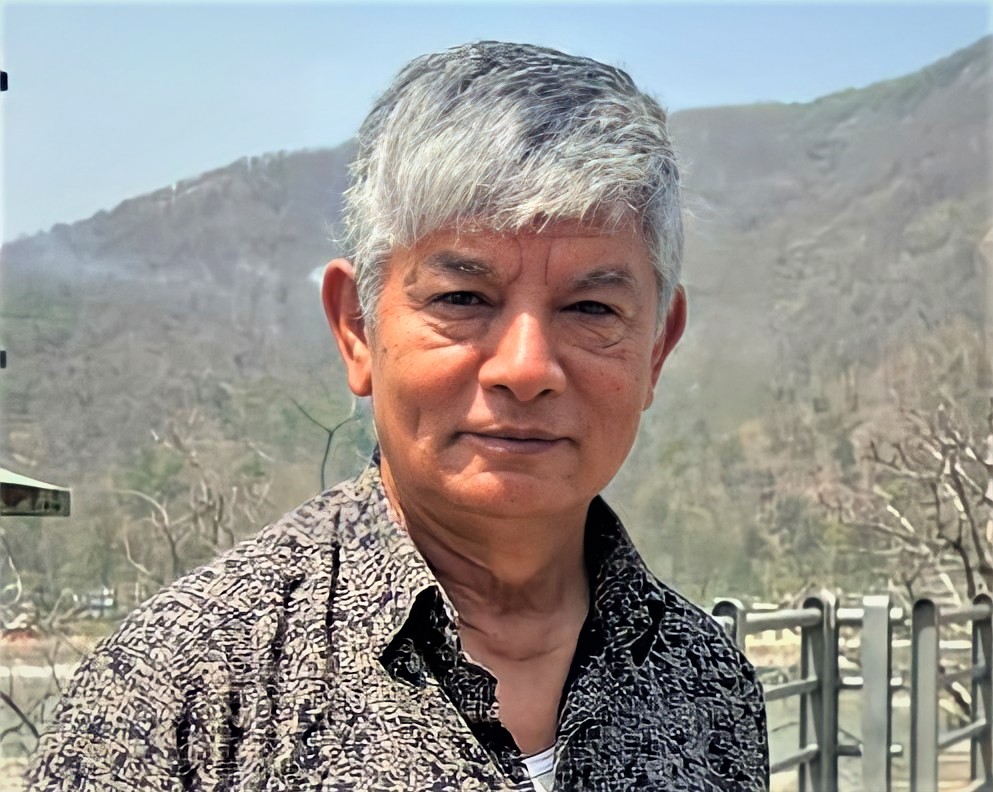
Uttam is an obsessed worker. He believes in a skill-based education system and focuses on making students independent enough to lead sustainable lives rather than giving them all the information in the world that they will rarely use. His approach has now reached the international level. He is making Nepal proud.
A shorter version of this profile was published in the print edition of The Annapurna Express on May 12.
Bhinda Swari Shah: Doing non-easy things was my norm
Quick facts
Born on 13 Feb 1933 in Kurseong (father exiled in India by the Ranas)
Went to St. Helens Secondary School, Kurseong
Graduate in liberal arts from Barnard College, Columbia University
Post-Grad in international relations from Johns Hopkins University (Was the first Nepali woman to pursue Bachelor’s and Master’s degree in the US)
Served as Nepal’s India envoy from 1988-89 (Was Nepal’s first women ambassador)
Wife of Dr Narayan Keshary Shah
Mother to Anil Keshary Shah and Ujjwal Keshary Shah

In 1951, while I was in school, I entered an essay competition called “The World of Tomorrow.” The prize was a month-long trip to the US. I won, and the journey started. I later applied to Barnard College, Columbia University and was accepted on full scholarship.
In the 1950s, for a girl from Nepal to go to school was a rarity. So, it was absolutely unheard-of for a girl to go study abroad, forget going halfway across the world to America. The only reason my father allowed me was that he knew what it meant to get an education, that too from America. Truthfully, at the time I didn’t realize I was the first woman from Nepal to get an opportunity to pursue higher education in the US. It felt like a dream—surreal.
I knew I would make the most of every day and each course that I took. From my first day, all I wanted to do was learn—from my classes, from my friends, and from America. Today, when I look back, I realize just how fortunate I was to get that learning experience because that was the foundation on which I built my life.
After finishing my Bachelor’s in liberal arts at Barnard in 1956, I worked as a caretaker of newly born twins of an official at Johns Hopkins University so that I would have a home to stay in and finish my master’s. I then completed my Master’s in international politics from the School of Advanced International Studies, Johns Hopkins University in 1958 and returned to Nepal.
I was a stranger in my own country. My English was perfect, but my spoken Nepali was good at best, and I could barely write Nepali.
At that time, the US government was helping establish the first library in Nepal, the American Library (now Tribhuvan University Central Library). And as I was one of the few people who had ever actually used a library. I was asked to help set it up. When all the work was done, it was jointly inaugurated by the then King Mahendra and the first democratically elected Prime Minister BP Koirala.
I gave them a guided tour of the library, explaining things in the English language and the prime minister asked me my nationality. When I told him my background, he was amazed and insisted that I join the government bureaucracy. With that bit of encouragement, I took the Public Services Commission examination and was selected for the Foreign Ministry. This was the first time PSC exams were conducted in the English language too.
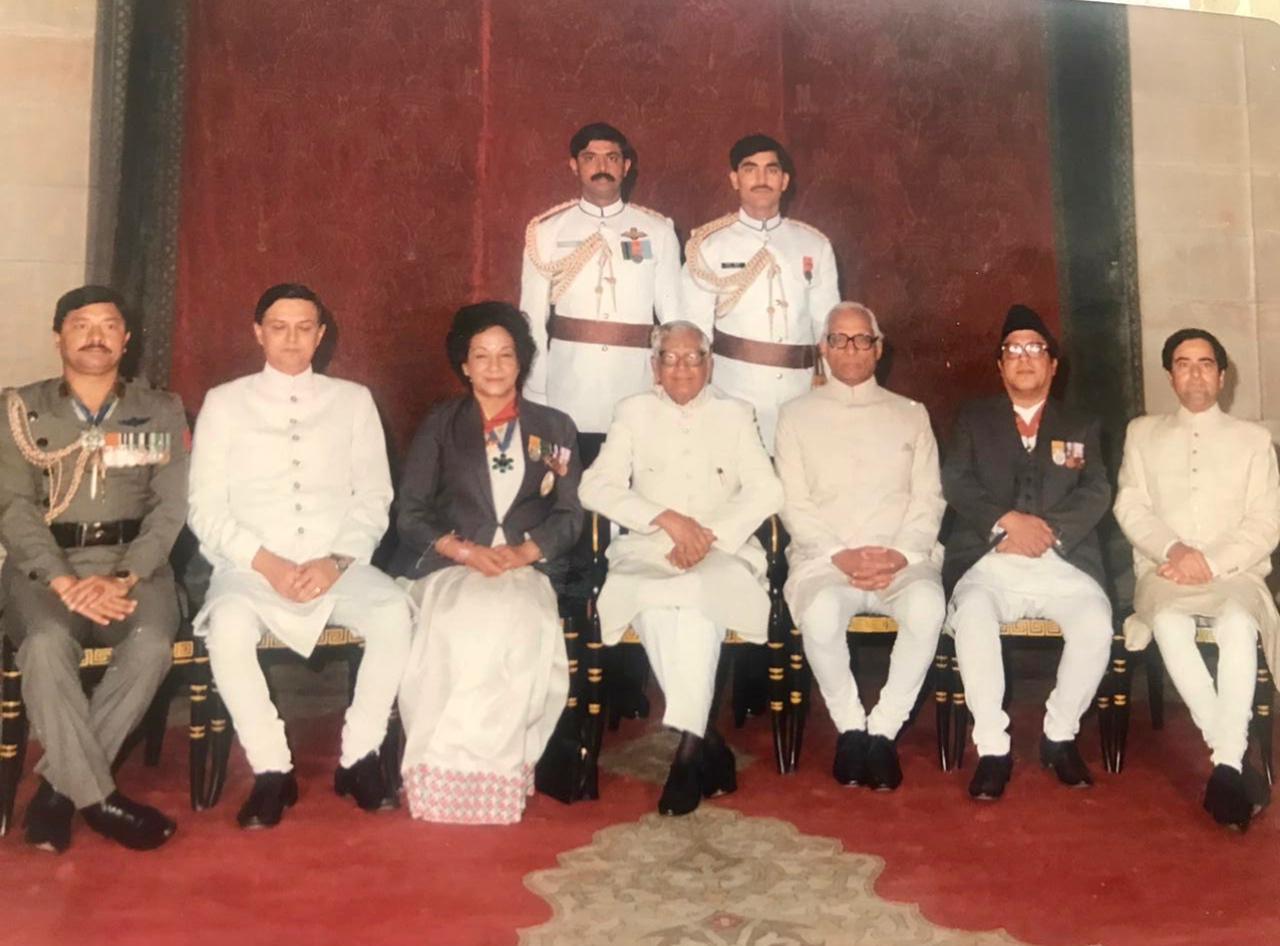 This 1998 photo shows Bhinda Swari Shah (front row, third from left) with the then President of India KR Narayanan (fourth from left) after the presentation of her credentials as Nepal’s Ambassador to India
This 1998 photo shows Bhinda Swari Shah (front row, third from left) with the then President of India KR Narayanan (fourth from left) after the presentation of her credentials as Nepal’s Ambassador to India
The ministry sent me to America as I was familiar with the environment. After completing my tenure there, I was assigned to establish the Nepali embassy in the newly independent Bangladesh. During my time, their president Sheikh Mujibur Rahman was assassinated in 1975. It was difficult to face the coup but the option was not to pack up and run. I faced it and successfully completed by assignment. Then, I was deployed to India as an ambassador amid a diplomatic crisis and turmoil. Again, during my tenure, India placed an economic blockade on Nepal. I faced it and moved on.
Throughout my life, there was not a single easy thing but I kept pushing my limits. Doing non-easy things was my norm. Either for a boy or a girl, there will be hills of hurdles but you have to keep moving forward. Make sure you don’t use the fact that life is hard for you as an excuse and not to do what you want just because you are a woman.
People see my life and say, wow, it’s a fairy tale. But there was a series of struggles and pain in this fairy tale. A working woman was always looked down in society during my days but I never lost my confidence. Today, my family has reached a certain height and everybody accepted us but there were times our relatives’ doors were closed for us due to my inter-caste marriage. I fought against these social challenges because I wanted to be a catalyst for change.
Many didn’t want me to succeed in the foreign ministry but the English language was my asset and they needed me despite their unwillingness. I didn’t get stuck in these barriers and helped everyone who needed me. No matter what portfolio I looked after, every embassy would first come to me.
I realized that my education and exposure made me unique in many ways, and along with my career I would always speak up for gender equality at work and in society. Throughout my life I have believed that it is my duty to be the voice of tens of thousands of Nepali women who didn’t have the opportunity to get the kind of education I received. In addition to being Nepal’s first woman ambassador, I hope this will be as big a part of the legacy I leave behind.
Everyone wants to be a professional but it is not an easy job. Since my marriage, my family never got to live together until we retired. This is a sacrifice professionals have to make to. I could have resigned and lived with my husband as he was an official of the World Health Organization. My children would have a normal family life with their parents together. But we didn’t because professionals are committed to their responsibility and everyone has to understand this.
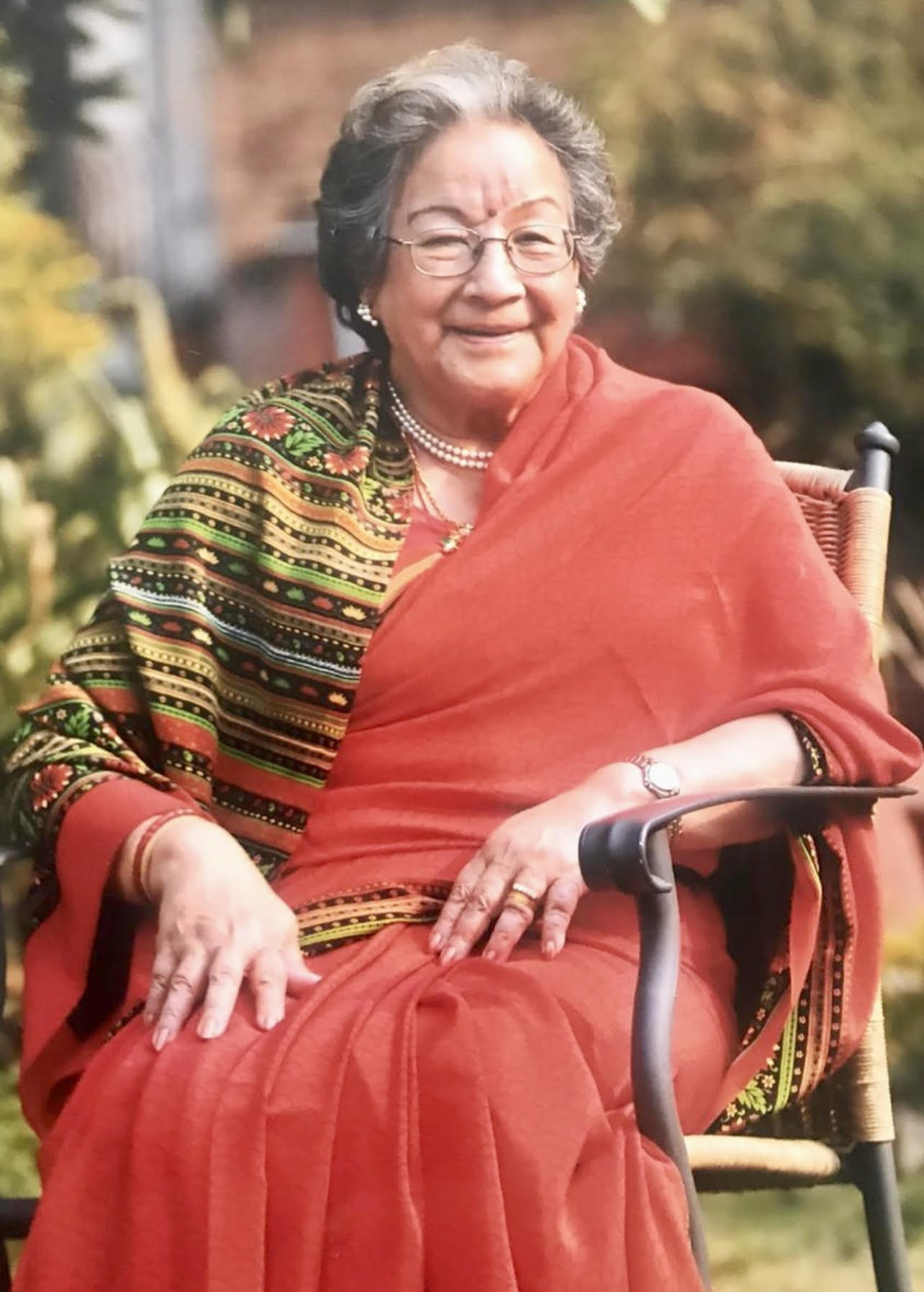
About her
Aarya Shah (Granddaughter)
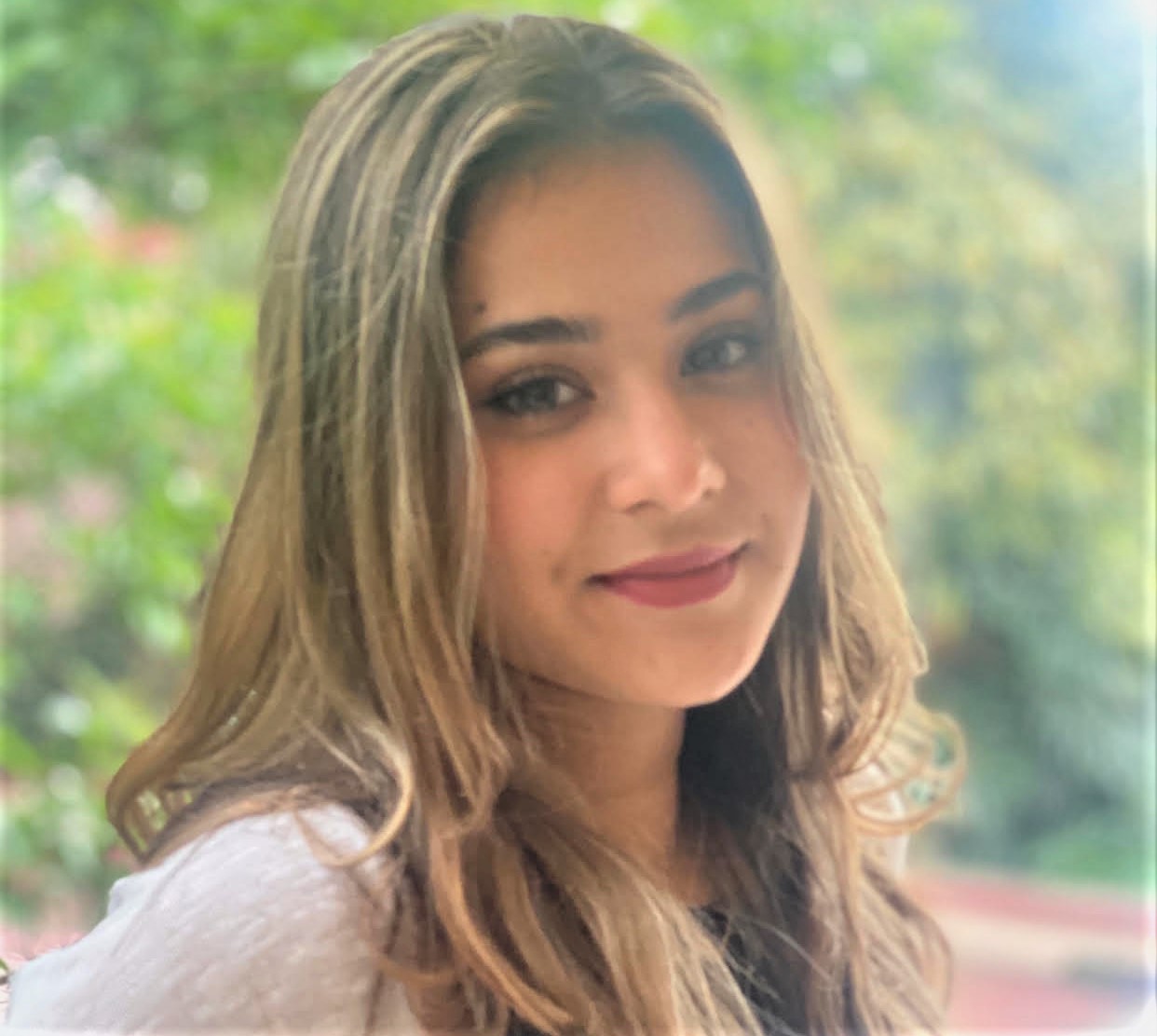
“Don’t follow in my footsteps, start your journey from where my footsteps end.” My grandmother’s words that always ring in my ears. She is undoubtedly my mentor, not just because she is my grandmother, but because she has been a trailblazer for gender equality throughout her life. She not only showers me with unconditional love but fills me with inspiration to be all that I can be. Whenever I doubt if I can do something, I always go back to the memories of my grandmothers’ life and all she overcame to be who she is, and I am filled with the confidence and energy I need to overcome any challenge before me.
Madan Bhattarai (Colleague)
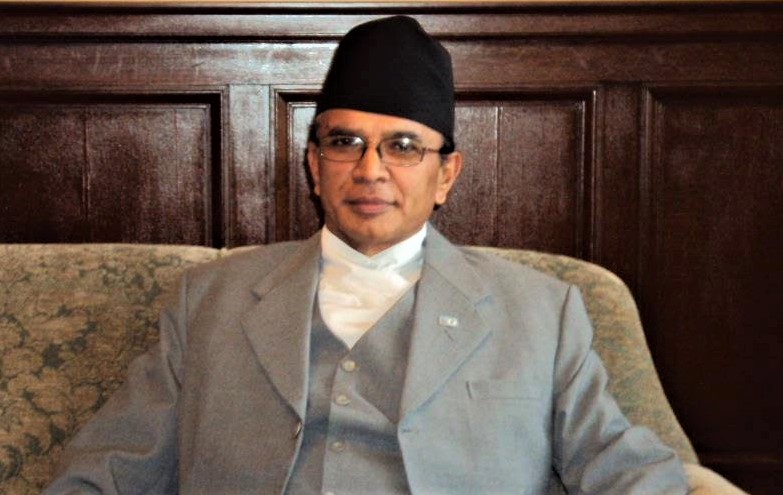
Madam Bhinda is my senior whom I consider my diplomatic mother. She is not only a person but an institution as her expertise on scientific filing, country profiling, diplomatic agenda preparation, drafting of agreements and protocols all set a norm in Nepal. Hence, I must confess that whatever positive things I learned in diplomacy were entirely due to her instructions, which guided me both in the foreign ministry and our mission in New Delhi. (I was her first secretary in Delhi.) At that time, she used to blindly trust me on reports which used to be presented to the King.
Helga Bendix (College Friend)
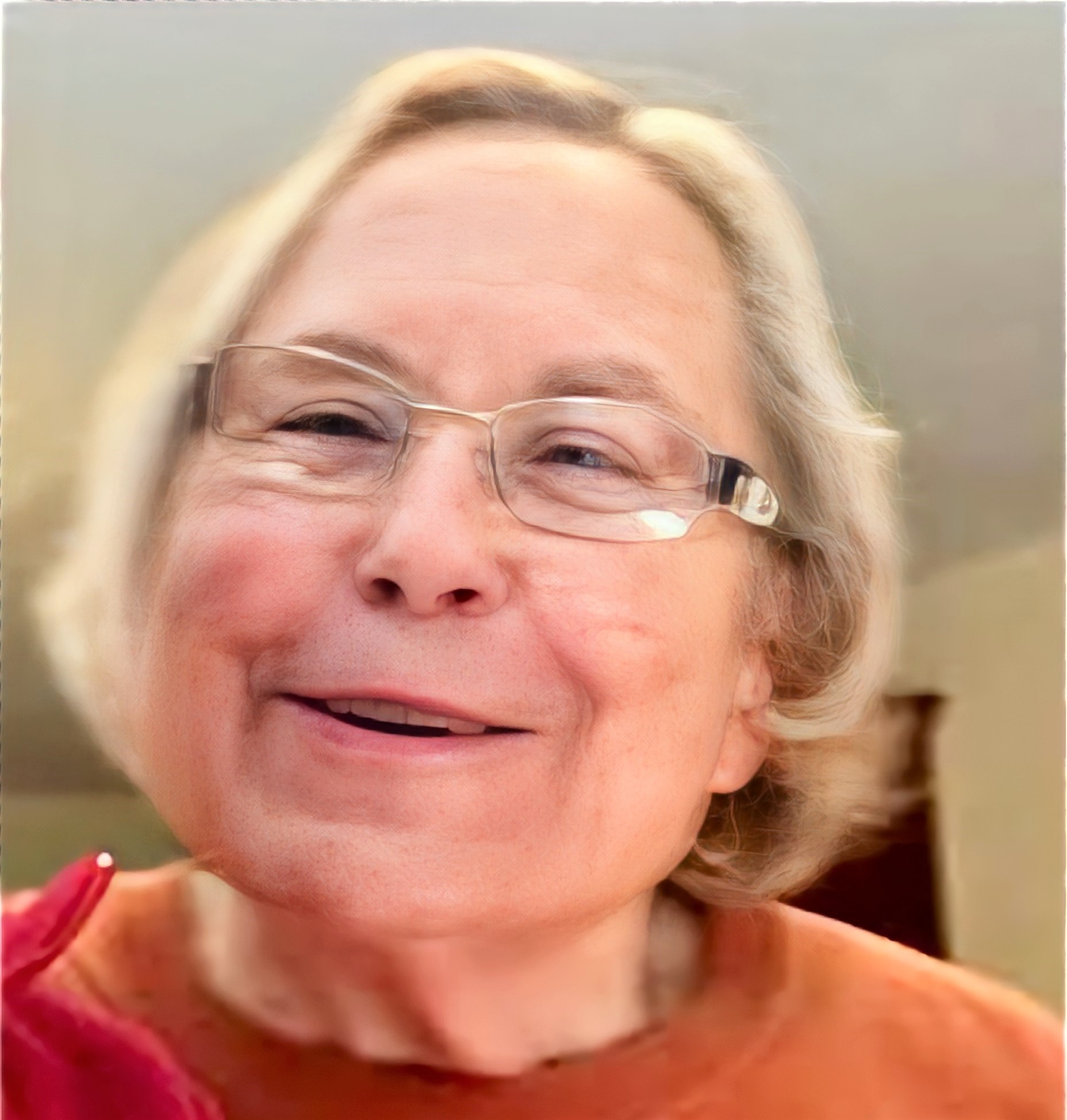
I still remember the first time I met Bhinda in our dorm on the first day at Barnard College in 1952. Little did I know that this girl from a country on the other side of the world would be among my closest life friends. If I had to choose one word to describe Bhinda it would be ‘Brave’. She has lived a life that could be an epic movie in which she is the Hero. We have been friends for 70 years. I traveled to Nepal for her wedding. She became the guardian of my daughter when she was in Nepal as a Peace Corps volunteer. I was a guardian to her sons when they came to the US for their college. As the months turned to years, to decades, to a lifetime we have shared our joys and tears, our highs and lows and through it all, we’ve considered ourselves fortunate that we met that first day of our college.
A shorter version of this profile was published in the print edition of The Annapurna Express on April 28.

















